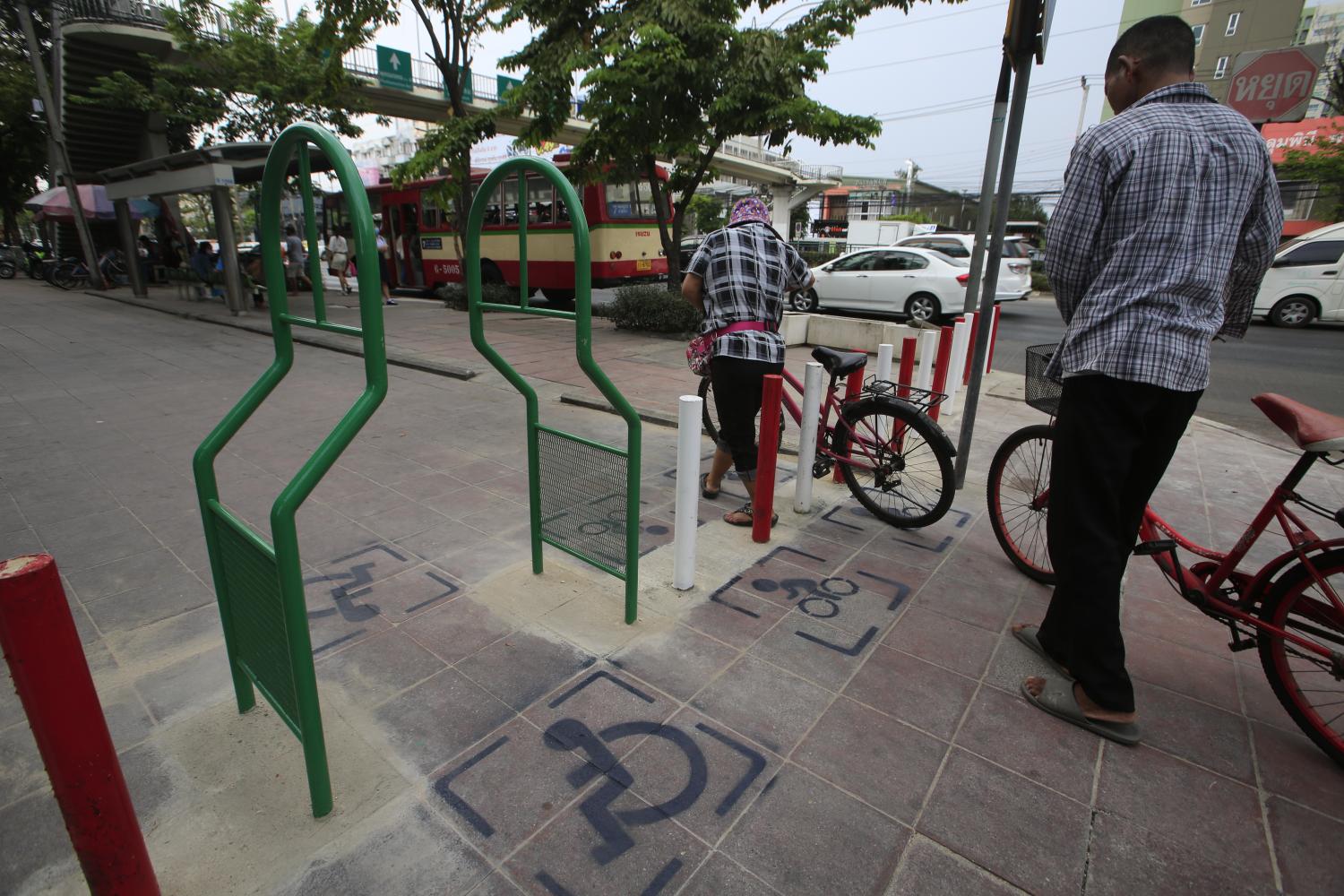
Navigating Bangkok's pavements is like walking in a mine field or an obstacle course. But everybody who has ever travelled in the city on foot knows that.
Most people can cite the litany of obstacles plaguing the city's pavements -- food stalls, moving motorcycles, privately- and city-owned signs of all sorts, electricity poles, parked cars, and, last but not least, traffic police booths.
It's not uncommon to find a pavement that was empty only yesterday suddenly sprouting a food stall or a fully fledged streetside restaurant with tables and chairs lining it.
After the first vendor makes a successful landing, you can expect others to follow suit.
The phenomenon, probably incomprehensible to foreigners from developed countries, may be explained by a number of socioeconomic and sociological reasons.
Rather than doing that, let me put it in simpler terms. We Thais are pragmatic people.
You can call it selfish or shameless or whatever, but we don't mind exploiting common spaces for our own benefit since we think no one cares. The spaces are empty anyway, so why not use them for good purposes. Right?
Every transgressor has a convenient excuse or two. Motorcyclists say "we ride on pavements only for a short distance".
Stall vendors say "we take up only little space". Car owners say "we park on pavements so we don't block traffic".
Don't look for law enforcement against the illegal use of pavements; it is laughable. Not that it doesn't exist.
One of the perplexing aspects of law enforcement is that authority over pavements belongs to the city administration while the street surface right next to the sidewalks belongs to the police.
So, the police will not issue tickets for vehicles illegally parked on pavements. Likewise, the city police can do nothing about illegal vending on sidewalks.
However, law enforcement is the wrong end of finding a solution to the problem. The root cause is the mindset of officials and policymakers who look at road traffic as the overriding goal of city development. Foot traffic be damned.
It is this car-first mindset that gives us a completely loopy car culture. It often leads to pavements -- already narrow -- being sliced to allow for road expansion.
Pedestrian bridges, built all over the city, take up even more real estate of pavements, all because officials don't want to inconvenience car drivers to have to stop for pedestrians.
For normal people, all these happenings with the city pavements are an annoyance at best and psychosis-inducing at worst. But at least they have full physical faculties to navigate them to their destinations.
The same cannot be said of vulnerable groups like people in wheelchairs, the blind, the elderly and perhaps pregnant women as well.
For them, city pavements present the most serious challenge to their everyday life. They may be able to walk around some obstacles. But on many, the task is simply impossible.
In the interests of full disclosure, my daughter, Sai, is blind and therefore is fully affected.
Since losing her sight over a decade ago, she has had to be accompanied wherever she goes to her frustration and despair.
Even though she can travel by herself with the help of a cane or her guide dog, she cannot walk the length of the soi we live in to the main road without having to walk on the street surface part of the way.
And if she wants to cross the road, it's a life-or-death manoeuvre.
People in wheelchairs have it worse. It's almost impossible for them to travel without help. A few who drive often find parking spots for the disabled occupied or no spots reserved for them at all.
Complaints about the haphazard state of Bangkok's pavements have been going on for ages. Yet the situation has not shown any signs of improvement, and it is unlikely to get better anytime soon.
You have to wonder why.
I'm willing to bet that most officials concerned with this issue have taken trips, on the country's expense, to more advanced societies. So, they have the experience of walking on sidewalks designed to be pedestrian-friendly.
But once they step off the plane, they suddenly have an amnesia attack and forget to apply what they saw and learnt to improve the pavements at home.
A YouTuber, who runs a channel called the Smile Riders Channel focusing on pavements, blames bureaucrats and politicians for "unabatedly inflicting harm on pavements and pedestrians".
He says Thailand has been developed to a great degree but has not achieved real progress because bureaucrats and politicians lack the vision for sustainable urban development.
"Pavements are an indicator of development and quality of urban society," he says.
"If pedestrians … benefit from improved quality of life as a result of improved quality of traveling, that's when we can say that our country is well developed."
